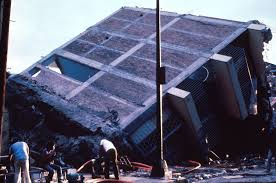On Sept. 19, the 8 million inhabitants of Mexico City awoke to violent shaking and the sound of destruction. A 7.1 magnitude earthquake ripped through the city and countryside, resulting in more than 300 deaths, countless injuries and irreparable damage to homes and infrastructure. For many Mexicans, this scene was all too familiar and brought back memories of the 8.0 earthquake in 1985.
Natural disasters test the strength and will of a country’s citizens, its leaders and its political system. There have been considerable developments in Mexico’s political system since the 1985 earthquake, namely its transition towards democracy. This raises the question — are democracies better equipped to handle natural disasters than non-democratic governments?
The 1985 earthquake was much larger than the one in September, and the Partido Revolutionario Institucional (PRI) regime in power at the time received much criticism for its ineffectual response to the earthquake. President Miguel de la Madrid initially refused accepting international aid. In hindsight, this was because he was eager not to be further indebted to other countries. Specifically, modern democracies like the United States and Canada, who could possibly use their aid as leverage to push for institutional change in Mexico down the line.
When aid was finally allowed into the country, Madrid insisted it went to organizations that had his approval. He did not allow various non-governmental oraganizations and other groups to problem-solve as they saw fit. Reports have also shown how members of the military sold the supplies intended for victims of the quake on the black market. It can easily be said that characteristics of the authoritarian-esque government of Mexico hampered rescue efforts in 1985. Chiefly among these was the president’s lack of international cooperation, his refusal to delegate power to others and the lax restrictions on corruption, all of which negatively affected the lives of the Mexican people. The handling of the earthquake by the Mexican government proved to be influential in the transition toward democracy.
It is too early to say whether the recent handling of the earthquake was better than 1985 since the situation is still unfolding. It would certainly be hard to do worse. The characteristics of a democracy seem better suited to handle crises in general. We can observe this in the U.S., where different aid organizations operating in Texas and Florida have been able to act autonomously and work in conjunction with the U.S. government.
There are also significant general benefits of being a democracy in times of disaster. Most important are allies. When a country becomes a democracy it becomes a member of the international club, so to speak, and it is more likely to receive aid from fellow democratic nations. The characteristics of a democracy and the international friendships that come along with it seem to put democratic states at an advantage when dealing with natural disasters.


